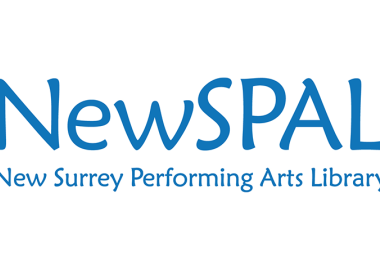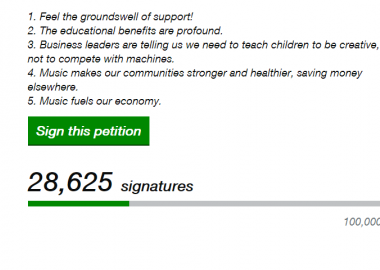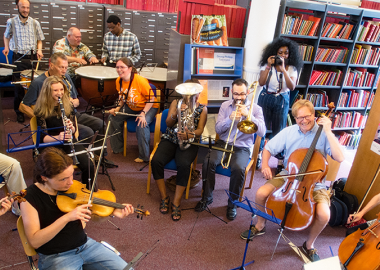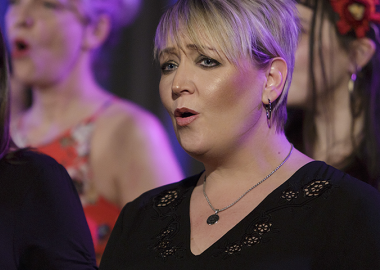In September, Making Music hosted a symposium with key figures in the music sector to identify the barriers and needs of adults of all ages, backgrounds and abilities, and how we can improve their access to music learning.
A wide range of individuals and organisations came together for the day, reflecting how important this discussion is right across the whole music sector. We were delighted to welcome attendees including organisations, businesses, educators, leisure-time music groups and more, which led to some fascinating discussions.
Current music learning for adults
Participants identified the range of adult learners to be wide in terms of age, ability, musical background, disability, and motivations. They also pinned down some of the common barriers to these adults engaging in music learning as a lack of confidence and time, lack of opportunities or awareness about them, financial constraints and, quite simply, life getting in the way.
Fabulous, thought-provoking talk by @HenleyJennie @MakingMusic_UK about the importance of adult learning and the problematic assumptions we (as a society) make about music-making, learning and progress #adultmusiclearning - Rachel Shirley @strawbini
Panellists included an open access orchestra, an experienced freelance piano teacher and Trinity examiner, examining body ABRSM, choral conductor, and research from Creative United, which reveals a significant lack of information available about access to instruments for the 3.9m disabled people in the UK.
The future of music for adults
But what can be done about removing these barriers and how can we improve access for everyone? Participants got together for lively discussion on solutions.
They talked about who to advocate to about the many benefits of music making for adults, and how to present these arguments in more impactful ways. Improvements to teaching resources was discussed, and how more support could be given to professionals engaged with adults learners, as well as adapting the examination system to suit adults.
Physical, geographical, financial and psychological access was also discussed, from trying to make music more accessible through the language we use, how learning is conducted, financial barriers, lack of practice space to whether it can be made more inclusive.
And a huge thank you to you @MakingMusic_UK for creating space to start conversations, build connections and consider ways we can enable more people to engage in lifelong music-making for personal and societal benefit #AdultMusicLearning - Culture, Health & Wellbeing Alliance@CHWAlliance
The day marked an important step in the conversation about adult music learning, and Making Music will be hosting a follow-up afternoon in January to flesh out more detailed actions and involve more organisations in this discussion.
Read more about the event and find out about our music education campaigning.










